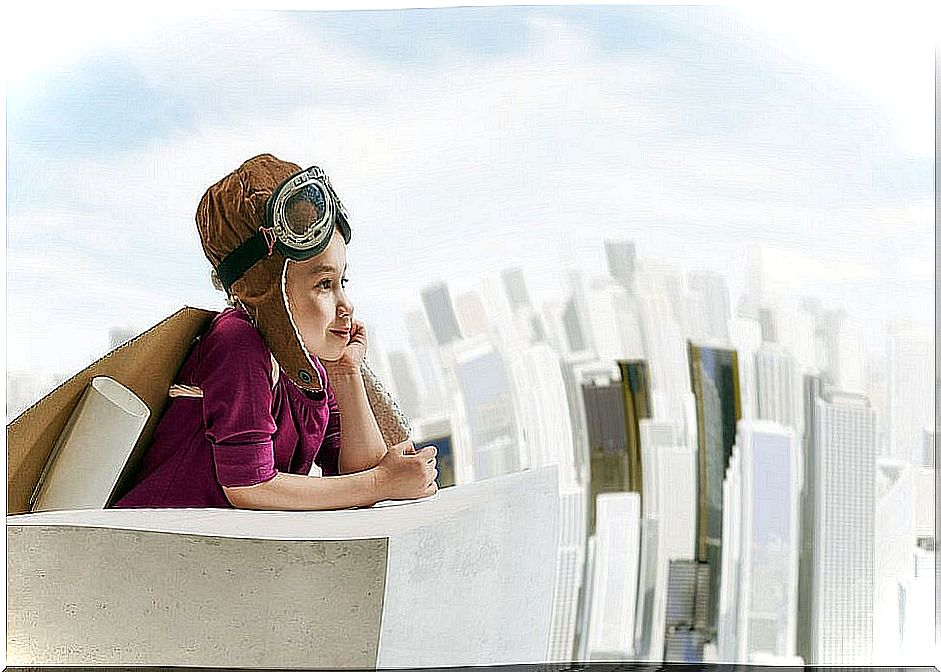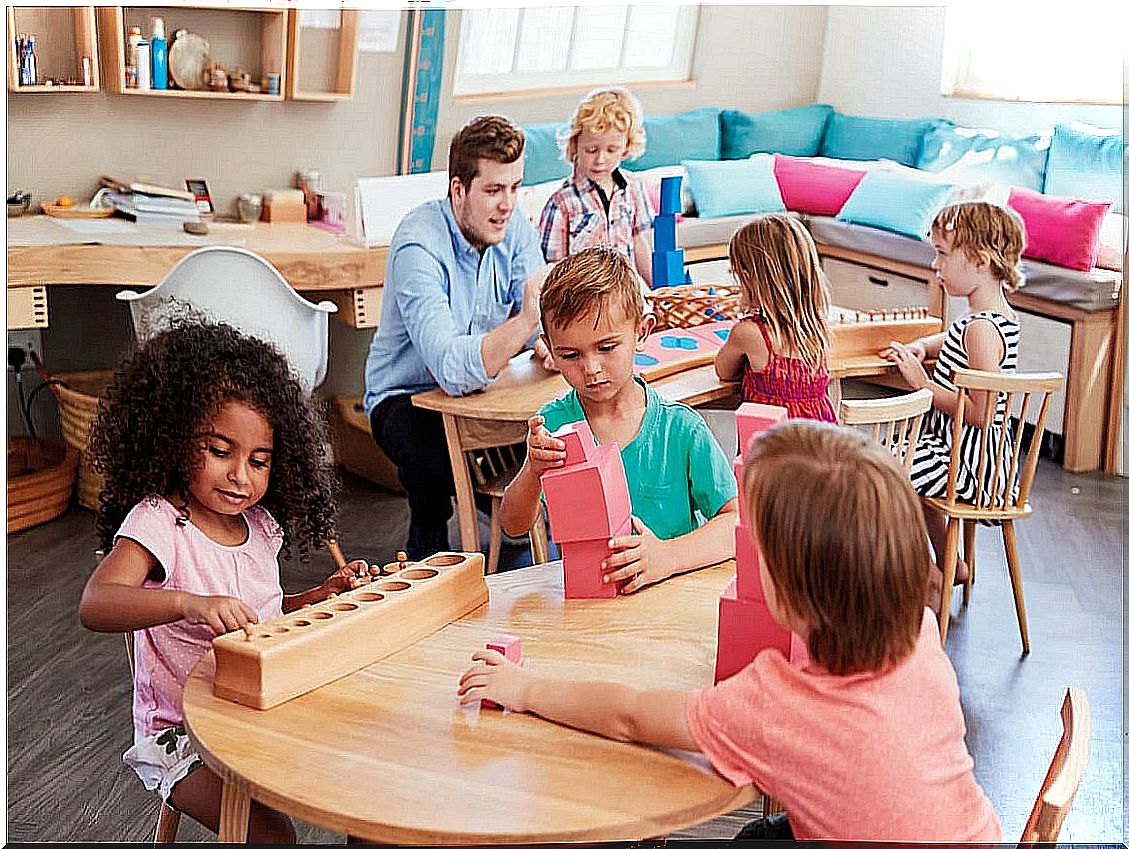What To Do If My Child Has An Imaginary Friend
Many children have imaginary friends, characters that stimulate their creativity and help them express their emotions. However, for parents they can become a concern. In this article we will explain what to do if your child has an imaginary friend.
Why do children make up imaginary friends?

These beings created by the vibrant and imaginative minds of children can appear from the age of 2, when the child begins to learn language and understand the environment in which he lives. Their existence is due to several reasons and, generally, as they appear, they leave.
Parents are surprised to see their child playing and talking alone. When he asks the boy what it is about, he calmly replies that it is his new friend. Although they can be a source of concern for parents, imaginary friends are part of the child’s emotional development . They are sometimes associated with highly creative and sensitive minds.
A study of 152 children between the ages of 3 and 4, led by researchers Marjorie Taylor and Stephanie Carlson of the Universities of Oregon and Washington respectively, found that 2 out of 3 infants had imaginary friends. 70% of the sample were first-born or only children. However, it is suggested that there is not necessarily a direct relationship between loneliness and the imaginary friend. In this way it is understood that the imaginary friend helps the child to express his feelings and improve his communication skills.
However, we cannot rule them out as signs of emotional deficiencies or shocks. They are allies that can help them face difficulties such as the divorce of their parents, the arrival of a new brother, a change of school or a move to a city or country.
Read this article: 4 advantages of your child playing alone
My son has an imaginary friend! What I do?
The first thing to do when a child has an imaginary friend is to keep calm. Up to 8 years it is normal for a child to have an imaginary partner. We just have to learn how to deal with them with respect and caring.
Act naturally
Avoid ignoring or denying your child’s imaginary friend. Treat the situation naturally, without encouraging the relationship or prohibiting it. Remember, for him it is part of his life.
Meet the imaginary friend
Parents are encouraged to meet their children’s new friend, as they would a normal friendship. By asking details about it, you will learn what it means to your child and how to better handle it.
The imaginary friend is neither excuse nor justification
If your child uses it to break a rule or commit a mischief, don’t let it. Teach him to accept responsibility and learn what discipline is, regardless of whether this character exists or not.
Do not miss: Tantrums in public: we say goodbye!
Encourage encounters with real children

Although the attitude towards these imaginary companions has to be one of respect and tolerance, it encourages them to meet other children to play and share. In this way you will stimulate their psychosocial skills. Imaginary friends will most likely start to disappear .
When to worry?
In general, when a child has an imaginary friend, there is nothing to worry about. However, if any of the following situations arise, the assistance of a psychologist or therapist is recommended.
- The child isolates himself and prefers to play with the imaginary friend rather than with real friends.
- Excitement, loss of control, mental confusion or irritability when the character appears.
- The imaginary friend’s personality causes discomfort or fear in your child.
As we always say, the time and attention you dedicate to your child are key to detecting any real problem.
See also: Why it is important to teach the value of friendship to children
Thady Carabaño
Degree in Social Communication from the Central University of Venezuela (1992). She worked as a programming manager at Colombeia TV (2011-2013) and attached to the manager of the Office of Institutional Relations at TVES (2013-2016). For more than 9 years she was an external provider of editorial services at CANTV. As of 2016, he focused his career on content writing. Currently, he works for opperweb.com and inmobilia.com.








